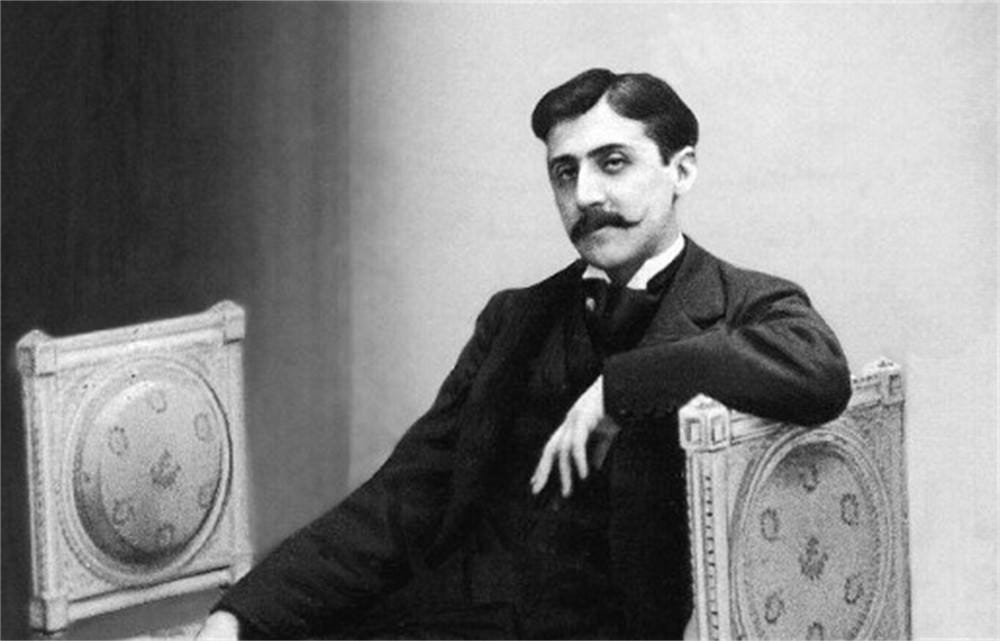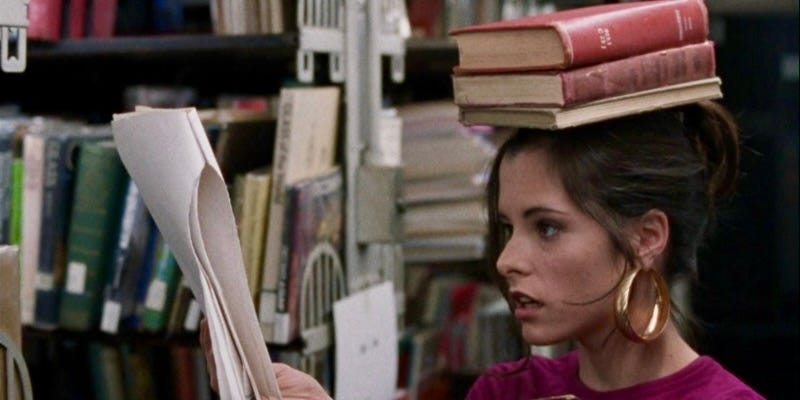I want to read Proust, but the Internet has made me stupid.
And Gen Z can't read cursive.
If you enjoy what you read today, please like, comment, or share. This is a free newsletter and can be accessed by anyone, and not all support needs to be monetary! A heart or some kind words go a long way.
If you’d like to help support my writing financially, consider upgrading to a paid subscription for $5 a month or buying me a coffee—I spend long hours at the library studying and writing and consequently drink a lot of it.
Paid subscribers receive additional newsletters & content, the knowledge that you are helping support a creator and their work, as well as my enduring love and appreciation. <3
“Anything we have not had to decipher, to bring to light by our own effort, anything which was already clearly visible, is not our own.”
— Marcel Proust, Time Regained
I thought the other day that the internet might be outgrowing me, that striving for a slow, intentional pace may not be possible in this world anymore, and that by adopting this mindset, I would be left behind by our hurried world. If this is true, it makes sense why I feel so at odds with my surroundings. But I may be looking at it all wrong. Maybe I am the one outgrowing it.
Lately, I find myself rushing through all the small, mundane tasks that make up my days—brushing my teeth, eating lunch, making coffee in the morning, walking the dogs. An ever-present sense of lateness colors everything, like I am forever running behind, even on my free days when I have little responsibility. It breaks my heart a little because these fundamental human needs, tasks, and joys have begun mirroring the frenetic pace of the online world—the digital seeping into the sacred space of my physical reality.
What hope is there for someone like me, who craves slowness and intentionality, amidst this digital landscape? Is it even possible to match the pace of the machine's insatiable appetites, and if we can’t, are we doomed to fall behind? These questions wouldn’t be nearly as harrowing if our financial success (especially for those who are self-employed) weren’t so critically tied to our visibility on the internet. Platforms prioritizing long-form content like Substack may be the solution, but predicting that trajectory is difficult. I remain hopeful that Substack will stick to its guns and resist the temptation of ad revenue, but I’ve been disappointed by platforms before.
Growth of any kind on short-form platforms feels impossible these days. Constant and contradictory advice is thrown about carelessly, glancing around the web in an echo chamber of social media optimization tips: post twice daily, participate in trends, use hashtags, educate your audience, tell a story… After spending nearly a decade in this industry, I've heard and tried them all. Most of the advice they peddle is obvious, low-hanging fruit that most people already know or do anyway. But we are so desperate for a quick fix to this massive problem that we are willing to try anything, heeding their advice while hanging on each word with bated breath. Here’s how you hack the algorithm…
Our TL;DR culture loves quick fixes and fast, accessible content, and short-form platforms have trained us to accept that as normal to the detriment of our attention spans. We already see the effects of this in our culture as it pertains to the politicization of just about everything deemed “intellectual.” This rapid decline in critical thinking and misinformation spread by a problematic algorithm that prizes watchability over integrity only feeds the beast, creating an endless feedback loop of superficial, forgettable content. Rage bait is a prime example of this, and I recently learned of the term enshittification, which perfectly describes what we are collectively experiencing in our digital spheres. We’ve reached the point in our culture where intelligence and critical thinking are demonized. At the same time, ignorance is weaponized and celebrated, and prioritizing books and articles over our phones is seen only as something the woke left engages in. Many are defiantly proud of their intransigent perspective on the world around them, wearing it like a badge of honor that differentiates them from the progressives they despise.

As I wrote this, I remembered the recent discovery that much of Gen Z cannot read cursive. This was discovered when a Harvard student giving a report on the Civil War confessed that he couldn’t read most of the book his report covered since many documents were written in an elegant, spidery script, revealing that we might be on the precipice of losing the ability as a species if we don’t do something about it. With that, as The Atlantic article argues, dies the ability to decipher the recordings of our past. I worry, more often than I should, that our ability to sit and read anything requiring time and effort will similarly die out.
“…it turned out that two-thirds of the students in the class couldn't read cursive. And I was just stunned. I had no idea. So I set out to explore some of the implications of that for historians and for history, because I am a historian, but also more broadly, just what it means when you can't read your birthday card from your grandmother and you have to have your mother translate it for you.” (source)
This is just one of many ways our culture prioritizes efficiency at our own expense. What was once seen as a practical omission from the curriculum (the argument against it being we can simply type instead) potentially has severe implications for our ability as a species to understand our very own history.
This brings me back to my original point: this (picture me gesticulating wildly) all moves too fast, and this speed is not natural. I write almost exclusively in cursive. I initially started this habit because I loved how beautiful it looked, but I continued because it forced me to slow down when journaling, and slowness is an essential part of that ritual. But even I sometimes fall prey to the temptations of my computer’s keyboard, opting to type my thoughts instead when I feel particularly rushed or frantic.
Similarly, my ability to read long-form has significantly decreased over the years. My brain became accustomed to the pace and efficiency of tiny tidbits of information. Slowly, bloggers migrated from Blogspot and WordPress to these new social platforms, truncating their words to fit within the allotted space of an Instagram caption. When you visit their abandoned blogs, you find the ghosts of their long-form content, their final posts dated sometime around 2015. They feel like digital graveyards.

As a child, I read far beyond my grade level. In the second grade, my school’s librarian once scolded me for trying to check out Call of the Wild because it was “too old for me.” I went home, discovered my dad had a copy, and spitefully read it anyway. I maintained this reading pace throughout high school, falling deeply in love with the works of Sylvia Plath, all of the Bröntes, Jane Austen, William Faulkner, John Keats. I loved words, and I still do. I love their ability to move you, their beauty, and their inherent power. I played with words for entertainment in my spare time, posting embarrassingly diaristic writing and poetry on Tumblr, a practice I maintained well into college. I sought refuge from the world at my local library, running my fingertips reverently along the plastic-covered spines of the classics and breathing in the dust-laden scent of the yellowing, love-worn pages. I fantasized about being a part-time library clerk (I aimed high, I know), weaving silently in and out of the aisles with my cart full of books. Later I fantasized about becoming an actual librarian, a dream I eventually gave up after learning the disparity between the pay and the extent of education required.1
Now, in 2024, after spending almost ten years on a platform that desiccated my ability to concentrate, I must set about the task of rebuilding my mental endurance to Proustian, Joycean, and Foster-Wallacean (?) depths because there is so much beauty I want to consume that requires time, attention, and care, and my time on this planet is limited. I once had an almost brutish capacity for books, and I pine for that stamina like an aging athlete reliving his glory days.
I impulsively decided earlier this week, in a fit of PMS-fueled rage and frustration, to stop giving so much of myself. I over-deliver in every area of my life, but most prominently to the content machine, doing whatever algorithmic gymnastics are required that day to keep the monster sated. I don’t want to try that hard for something so insignificant anymore. The juice isn’t worth the squeeze. I have a whole life outside of these platforms, but I was living otherwise. I want to use that time and energy to consume stunning, mind-altering writing, hug and kiss friends and family, run around with my dogs, dance, laugh, play, cry, and then sit at my desk and write about it all. No one wants to read about a life spent in front of a phone or computer screen—we want to hear stories from people who are out there living in the real world.
The choice to distance myself from short-form content platforms like Instagram and TikTok was an easy one in the end, but it took me a while to get here. I continually tried and failed with the moderation approach, ultimately realizing it wouldn’t get me anywhere if I didn’t just quit cold turkey. And it’s probably a smart choice in today’s climate to jump ship; if these apps were physical machines, we would already hear the tell-tale signs of mechanical failure. Everything ends, their time (at least for Instagram) is nigh, and I feel I can finally extricate myself from the tumultuous relationship I’ve endured with it for the last four years. My confidence was bolstered by my recent discovery from Kristen Drozdowski’s post that there is now a surgeon general warning for all social media platforms. It is a somber warning, one I can speak to from experience: I never feel as good as when I log out and forget Instagram exists, and I’m not being hyperbolic. I hope we can all feel that good someday. Sometimes, we forget that our participation in these platforms is voluntary.
My garden is here, on Substack, with my modest subscriber count of people who choose to be here and care about what I put into the world. I’m really grateful for everyone who has stuck around. This platform has given me what I’ve been craving for so long: connection, inspiration, and even meaning. It has allowed me to return to a writing practice I profoundly loved and missed, which is also a return to myself in many ways.
Now, I am off to the library to read Proust and psychology textbooks and think about what I will write next. Goodbye!




All I can say is BRAVO! I can’t tell if this was a breathe of fresh air, or a kick in the butt-either way it’s exactly what I needed and I devoured it ❤️
Beautifully said, Kait. I feel the same way. The struggle is real. ❤️